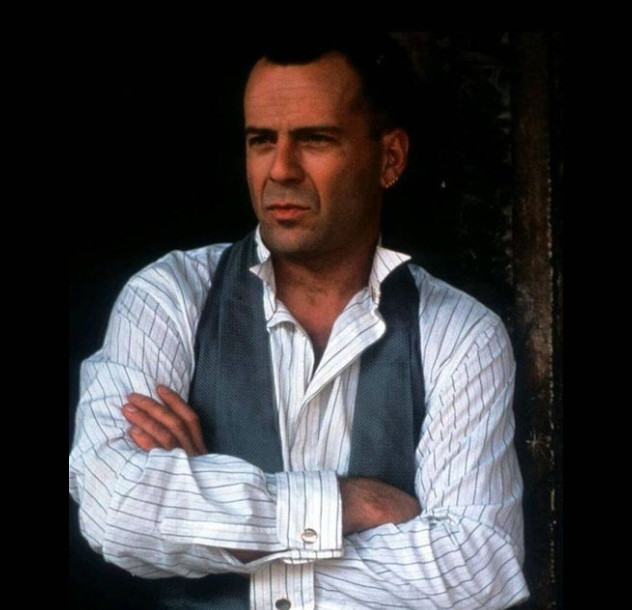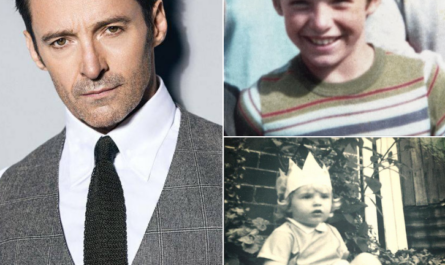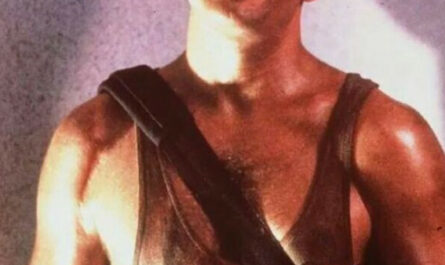Bruce Willis is a Hollywood legend, known for his iconic roles and charismatic presence on the silver screen. Throughout his illustrious career, Willis has faced off against a diverse array of adversaries, from cunning terrorists to inner demons. While there may not have been public pronouncements about Willis’s favorite on-screen rivalries, we can explore how these rivalries evolved over time and shaped his portrayal of some of cinema’s most memorable characters. From his early days on the hit TV show “Moonlighting” to his iconic turn as John McClane in the “Die Hard” franchise and beyond, Willis’s on-screen rivalries have played a pivotal role in defining his career and cementing his status as a Hollywood heavyweight.
Early Career (Moonlighting) (1985-1989):
Bruce Willis’s early success on the small screen with “Moonlighting” showcased his talent for banter and chemistry with co-star Cybill Shepherd. While they weren’t traditional rivals, the contrasting personalities of Willis’s wisecracking detective David Addison and Shepherd’s no-nonsense Maddie Hayes created tension and humor that captivated audiences week after week.
Action Hero Stardom (Die Hard Franchise) (1988-2013):
The “Die Hard” franchise solidified Bruce Willis’s status as an action hero, with each installment introducing new and formidable adversaries for his character, John McClane, to contend with. From the sophisticated Hans Gruber, portrayed by the late Alan Rickman, in the original “Die Hard” (1988), to the rogue military leader Colonel Stuart, played by William Sadler, in “Die Hard 2” (1990), and the vengeful Simon Gruber, portrayed by Jeremy Irons, in “Die Hard with a Vengeance” (1995), Willis’s on-screen rivalries reached new heights of intensity and complexity, adding depth and intrigue to the adrenaline-fueled action of the series.
Expanding Repertoire (12 Monkeys, Pulp Fiction) (1995-2000):
As Bruce Willis’s career continued to evolve, he began to explore different genres and tackle more nuanced roles, with rivalries taking a backseat to character development and storytelling. In Terry Gilliam’s “Twelve Monkeys” (1995), Willis faced off against Brad Pitt’s unhinged character Jeffrey Goines, whose unpredictable nature challenged Willis’s time-traveling protagonist in unexpected ways. In Quentin Tarantino’s “Pulp Fiction” (1994), Willis’s character, Butch Coolidge, found himself at odds with Ving Rhames’s formidable gangster, Marsellus Wallace, in a tense and uneasy partnership that added layers of tension to the film’s interconnected narrative.
Later Career (The Sixth Sense, Moonrise Kingdom) (1999-2010):
In the later stages of his career, Bruce Willis often found himself facing internal struggles or grappling with mysteries rather than traditional adversaries. In M. Night Shyamalan’s “The Sixth Sense” (1999), Willis’s child psychologist character, Dr. Malcolm Crowe, forms a complex relationship with Haley Joel Osment’s troubled young boy, Cole Sear, whose ability to see the dead challenges Crowe’s understanding of the world around him. In Wes Anderson’s “Moonrise Kingdom” (2012), Willis plays a local sheriff caught in the midst of a coming-of-age story, with his character’s interactions with Edward Norton’s Scout Master Ward adding depth and nuance to the film’s exploration of adolescence and adulthood.
Conclusion:
In conclusion, Bruce Willis’s on-screen rivalries have played a pivotal role in shaping his career and defining some of cinema’s most memorable moments. From his early days on “Moonlighting” to his iconic turn as John McClane in the “Die Hard” franchise and beyond, Willis’s ability to bring depth, complexity, and authenticity to his interactions with co-stars has solidified his status as one of Hollywood’s most versatile and enduring actors. Whether facing off against terrorists, navigating complex relationships, or grappling with inner demons, Willis’s on-screen rivalries have captivated audiences and left an indelible mark on the world of cinema. As we look back on his illustrious career, we can’t help but marvel at the evolution of Bruce Willis’s most notorious adversaries and the lasting impact they have had on his legacy as an actor.



